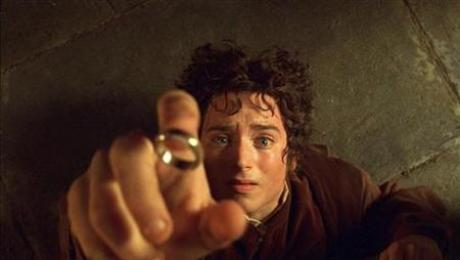Warner Bros may take Hobbit from New Zealand

Warner Bros. on Thursday said it will seek locations outside New Zealand to make its big-budget movie "The Hobbit" following union protests in that country that have stymied production.
The New Zealand government has vowed to step in to try to keep filming in the homeland of Peter Jackson, the director of "The Lord of the Rings" film trilogy that earned billions of dollars at box offices and spurred employment in the country's fledgling movie industry.
In recent weeks, unions representing actors and others have issued "do not work" orders against "The Hobbit," trying to force producers, including Jackson's Wingnut Films and Warner Bros, to negotiate with them on employment for independent performers.
"The actions of these unions have caused us substantial damage and disruption and forced us to consider other filming locations for the first time. Alternate locations are still being considered," Warner Bros said in its statement.
Last week, Warner Bros, a unit of Time Warner Inc, gave the go ahead to produce two movies based on J.R.R. Tolkien's fantasy, "The Hobbit" in New Zealand. The films could cost as much as $500 million, according to media reports.
Work on sets has begun and filming was expected to start in February 2011, but it was unclear whether actors would be available as unions pressed Wingnut and Warner Bros to allow them to negotiate for independent performers.
Several, including New Zealand Actors Equity and the U.S.-based Screen Actors Guild and the American Federation of Television and Radio Artists, recently recommended lifting their boycotts of the production, but Warner Bros. said New Zealand Equity and Australia's Media Entertainment and Arts Alliance still want to participate in negotiations.
"We have refused to do so and will continue to refuse to do so," Warner Bros. said in its statement, claiming New Zealand's attorney general had said such negotiations are illegal.
'DON'T KILL BILBO'
The wrangling between unions and producers and the loss of jobs during a time of global economic hardship has led to protests in the country's capital, Wellington.
Up to 1,500 protesters, including film technicians and other workers, took to the streets Wednesday waving signs that read "Ireland is not Middle-earth," a reference to the story's fantasy setting, and shouting "Don't kill Bilbo," the name of the film's protagonist.
By Thursday, Jackson warned that Warner Bros. might take the movie elsewhere. He and his filmmaking partner and wife, Fran Walsh, issued a statement saying: "It appears now we cannot make films in our own country -- even when substantial financing is available."
Warner Bros's statement on Thursday confirmed what Jackson said about a possible move.
Prime Minister John Key, who offered earlier this month to act as a mediator, said he would do everything he could to keep the project in New Zealand and protect its film industry.
"I think we have a strong position, but the industrial action from the unions and the threat of industrial actions ... have substantially undermined the confidence that Warner Bros has in New Zealand," Key told Radio New Zealand on Thursday.
"The government will have to sit down and talk to them about what we can do to restore that confidence."
Tolkien's novel "The Hobbit" and the "Rings" trilogy have earned legions of followers over the decades.
Jackson's films of the "Rings" trilogy grossed nearly $3 billion at global box offices. The final chapter, "Return of the King," won 11 Academy Awards in 2003, including one for best film.
 0
0 







Go to Forum >>0 Comments